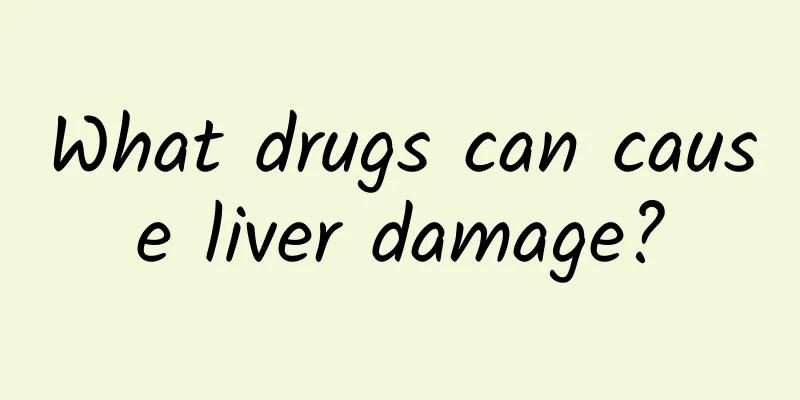Will the wound get infected if it gets wet?

|
If you have a wound, you must prevent infection, especially keep it away from water. We know that there are many pathogens in water, which can cause great harm to the recovery of the wound. In addition to keeping it away from water, you must actively cooperate with iodine tincture for disinfection and do a good job of wound care. Once an infection occurs due to water, if it is serious, you should seek medical attention in time. You can use some intravenous infusion therapies, and you can use appropriate antibiotics for treatment according to the specific bacteria. How to deal with wound infection better 1. If the patient's wound infection symptoms are mild, and the wound only shows symptoms of redness, swelling, and exudate, you can use normal saline to clean the wound every day, and use iodine to disinfect the wound. At the same time, pay attention to wound care to avoid reinfection of the wound. 2. If the patient's wound infection is more serious and there are symptoms of wound suppuration or even wound ulcer, the first thing to do is to perform debridement surgery on the wound to remove pus and necrotic tissue in the wound area to avoid worsening of the wound infection. After cleaning, change the dressing and treat normally until recovery. If you want the wound to heal as quickly as possible, you can use medicines that promote wound healing, such as Yu?'s Wound Healing Recipe, for treatment. 3. During the period of surgical wound infection, you can take some anti-inflammatory and anti-infective antibiotics orally under the guidance of a doctor. If the infection is severe, intravenous anti-infection infusion treatment is required. The choice of antibiotics depends on the bacterial culture results of the wound site and the patient's physical condition. 4. During the wound infection period, pay attention to wound care, pay attention to daily diet conditioning, avoid eating spicy and irritating foods, avoid eating hairy foods, and at the same time eat more foods rich in protein, vitamins, and glucose, and maintain a good and positive attitude. Reasons why wounds heal slowly or even fail to heal ① Wound infection, foreign body retention or local necrotic tissue, and dead bone formation; ② The local blood supply and microcirculation of the wound are poor, the local tissue nutrition supply is insufficient and the anti-infection ability is low. Even if antibiotics are used, it is difficult to reach a sufficient concentration locally; ③ The number of local growth factors decreases, the activity decreases, or the regulation of various growth factor networks is out of control, resulting in neurotrophic disorders; ④ Repair cell scaffold changes, excessive apoptosis, cell membrane receptor structure changes, and cause the growth factor to lose coupling with the receptor; ⑤ The drainage is not smooth, and the deeper pus or necrotic tissue cannot be discharged well, leading to chronic infection; ⑥ Large-area skin defects take a long time to heal, and the aging and edema of granulation tissue further prolong the healing time; ⑦ Exposed deep tissues such as bones, tendons, and nerves are prone to infection and necrosis. |
<<: How to know if you are infected during sheep biopsy
>>: How to take internal medicine to treat dermal spots
Recommend
Adding this thing to water can actually remove moisture from the whole body
Lu Guangxin, a master of traditional Chinese medi...
The child suddenly convulsed and became unconscious with a purple face. What happened?
There are many reasons why children suddenly conv...
How to treat cerebral infarction
Cerebral infarction usually occurs in middle-aged...
Symptoms of vitamin C deficiency
Children nowadays are generally more or less pick...
What to do if blood lipids are a bit high
If your blood lipids are a little high, you must ...
Is sodium metabisulfite harmful?
Sodium metabisulfite is quite common in our daily...
What is the reason for a lot of foam in urine? It may be urinary tract inflammation
Many male friends will experience excessive foam ...
What are the benefits of drinking hawthorn tea regularly?
Hawthorn tea, as the name suggests, is tea made f...
What can you eat to nourish your yin and beautify your skin? What are some beauty soups?
Nourishing yin and nourishing the skin is the foc...
Homemade enema for boys
An enema is an instrument used in the intestines....
Symptoms of roundworms in the stomach
Ascaris is a common intestinal disease and it mai...
What are the drugs for replenishing qi and blood?
Some people may feel dizzy for no apparent reason...
What are the functions and effects of bone supplement?
Psoralea corylifolia is a common legume herb with...
Six major types of men's diseases
Men's diseases are the most common type of di...
How to eat Huangjing
Polygonatum odoratum is a common Chinese herbal m...









